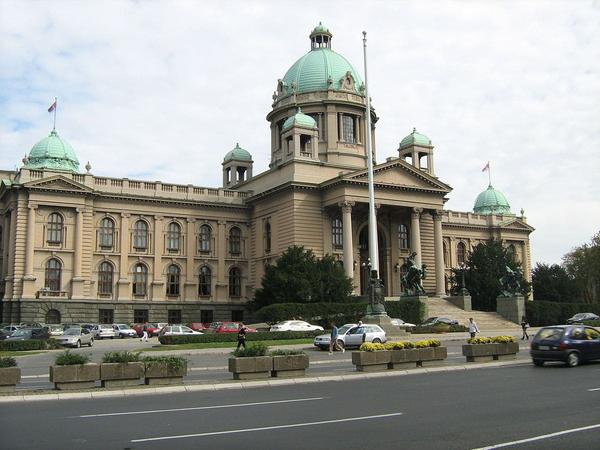History
1858 Nian 10 28, the first law on the promulgation of the Serbian Parliament, the Cypriot parliament's first history - St. Andrew's People's Assembly established on this basis, later renamed the Serbian people's Assembly. Cypriot parliament is unicameral, only during the 1901-1903 short practiced bicameral system. 1918 plug and the establishment of the Kingdom of Yugoslavia, Croatia and Slovenia, announced the dissolution of parliament plug, the establishment of the People's Assembly of the Kingdom of Yugoslavia. With the dissolution of the National Community of Serbia and Montenegro Federal Republic of Yugoslavia in 1991 and 2006, as an independent country, Serbia, on January 21, 2007 elected the first session of the People's Assembly. The second session of the Parliament on May 11, 2008 elections.
Introduction
Responsibilities
Serbian parliament can pass laws, budgets, development plans, spatial planning, settlement, declarations, resolutions, regulations, recommendations, decisions, conclusions and other types of motion. Government, Members, autonomous provincial council and voters number more than 15,000 organizations have the right to institute legal bill. Authorized to make legal proposals must make relevant interpretations of the proposed bill before parliament to discuss bill, first by the relevant parliamentary committee and government to discuss proposals and to express their views as to whether to accept the proposal of the Parliament. If the relevant committees and governments to accept the bill, parliament to be included in the agenda, the first general discussion, then one by one to discuss proposed amendments as needed, after the formation of a complete legal motion put to the vote.
organizational settings
Serbian Parliament Speaker set 1, the Deputy Speaker of the Secretary-General 1 and six people who are elected through the council elections. Speaker responsibilities are: 1 engaged in affairs prescribed by the Constitution; 2 presided over the council meeting; 3 inspection, monitoring the implementation of the articles of association of Parliament; 4 inspection, supervision and parliamentary working bodies working conditions.....
Serbian parliament consists of 30 special committees, as follows:
1 of the Constitutional Council
2 Finance Committee
3.. defense and security Committee
4. Foreign Affairs Committee
5. legal and Regulatory Commission
6. Board of Education
7. health and the Council for the family

8. transport and contact committee
9. international relations Committee
10. ecological Environment Protection Committee
11. Science and Technology development Committee
12. Sports Commission Youth
13. Committee on labor, soldiers and social problems
14. Urban Construction Committee
15 administrative Committee
16. development and economic relations Committee of Foreign
17. industry Committee
18. Committee on agriculture
19. and Serbian foreign Serbs relations Committee
20. Trade and Tourism Committee
21. culture and information Committee
22. letters and recommendations
< p> 23. Legislative Council24. privatization Commission
25. Kosovo and Metohija Committee
26. economic reform Committee
27. European integration Committee
28. poverty reduction committee
29. Commission for gender equality
30. Local Autonomy Committee
< / div>